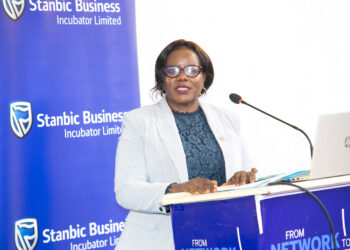Founder and CEO of Winglio, Slavko Ples, talks about the company sharing business model, its effect on the freelancing industry and opportunities this model holds for freelancers:
Sharing economy is changing not only how business is being made, but the very world around us. Just recently, a new branch on the sharing economy tree started to grow, a branch called company sharing.
After hearing about Winglio, I contacted founder Slavko Ples to tell me more about his company. It was very interesting to hear about this new side of sharing economy, its future and meaning. Let’s find out what company sharing is about & how it works:
Slavko, how would you describe the new trend company sharing?
Company sharing, or as we also call it “Rent a Company”, is basically a Company as a Service where many users share an existing company in order to reduce or completely eliminate fixed costs of running their own company.
What are the biggest benefits for the users of this business model?
The company sharing business model is ideal for those who do not need or want to have their own company but only need some legal entity to invoice their clients and receive payments. Those are mostly various freelancers who provide online services, developers, designers, consultants, etc. If they had their own company, the average running costs for the accounting service, virtual office, and some other expenses could reach a couple of thousand Euros annually which is a significant amount.
If they rented a company instead, their fixed costs would be zero Euro per year and they would not need to take care of accounting, paperwork or bureaucracy. They would be able to focus completely on their work and clients, thus additionally increasing their productivity and income. Also, they can start using the service the same day without any cost.
If there are no fixed costs for users, how does Winglio sustain itself?
The total cost of the service is covered with small fixed transaction fees and the unique Partnership Fee which accounts for 6.6% of the received income. It covers all running costs of the service such as accounting, corporate taxes, offices, support staff, etc. Regarding users, this means that they have a cost only if they have an income and they do not need to worry about anything related to the company they use.
How do users get their money and to whom do they have to pay their taxes?
At Winglio for example, users can use either our Irish or Malaysian company to invoice their clients. Clients send payments to Winglio and when the payment arrives, Winglio deducts its fee to cover all of the company’s duties, after which the users can decide if they want to request a payout to their bank account, PayPal or our Winglio debit card. Each payout is considered as the user’s secondary income or it can be considered as a dividend if the user has a preference share in Winglio. In both cases, the money received is taxable in the user’s country of residence. In many countries the tax rate on dividends is lower than the tax rate on secondary income, therefore users should check which option works better for them.
What are the biggest challenges your startup has faced so far?
We have faced many challenges since the launch of our first version in 2015. Most of them were related to service development which is not unusual when you are breaking the ice in a completely new industry.
Our current main challenges are related to communication and the acquisition of new customers. All important details are well explained on our website and through our FAQ section so most of our new users catch up very fast. Usually, they have 3-4 questions on average before they start using our service.
Of course, among many users who are looking for innovative and better solutions, there is always someone who belongs to a more conservative type of customers. For example, some of them still prefer the incorporation of their own company in the UK or some other country in which they can do it online. We often need more time and effort to explain how the company sharing model works and why this is better for them than the incorporation of their own company.
 Where has the company sharing business model been best accepted and how is it regulated in those countries?
Where has the company sharing business model been best accepted and how is it regulated in those countries?
Europe and Asia are the two main target markets for Winglio, we already have users from over 30 countries on these continents. Luckily, the company sharing business model does not require any special regulation in any of the countries because, from the perspective of each country and its government, this model is completely the same as the incorporation of a company in any foreign country. This is something which people from all over the world are doing every day. Actually, I would say that the company sharing business model is even better for both the users and their local countries.
For example, if a freelancer from Croatia incorporated a company in the UK, from 10,000 EUR of annual income, after deduction of at least 2,500 EUR fixed costs for accounting and virtual office and 20% corporate tax, they would be able to withdraw around 6,000 EUR as a taxable dividend from the company, meaning that they would have to pay around 720 EUR (12%) in dividend tax in Croatia, therefore their net amount would be less than 5,300 EUR. If they used Winglio instead, they would pay dividend tax on approximately 9,300 EUR, which is around 1,116 EUR and their net amount would be almost 8,200 EUR.
As you can see, in this simplified example, by using a shared company a freelancer would pay over 50% more tax to his local country, but at the same time he would have over 50% more money to spend, probably in his country, which again means over 50% more taxes paid through VAT. I believe this should be a good enough reason for the company sharing business model to be well accepted in every country.
What is the additional value that Winglio brings to the market?
Our mission is to make freelancers’ lives easier. We are convinced that the simplicity of doing business and getting paid will positively affect their productivity and results, which will bring higher quality to the whole industry. Also, since the company sharing business model reduces a lot of costs, in some cases it will bring a higher profit to the users of our service, whereas the lower prices for their clients will make them more competitive.
Can we say that the company sharing model has already become a trend among freelancers or it is still too early for such a statement?
Companies from Europe need a simple solution to pay individual associates who are not able to provide them with invoices, while those individuals need a simple and cost-effective legal entity to invoice their clients and get paid. Thus, renting a company seems to be the perfect solution for both of them.
Nevertheless, the company sharing industry is still at a very early stage, so maybe we cannot consider it a trend just yet, but according to our projections and a double-digit growth rate on a monthly basis, I would definitely say that it will become a serious trend very soon.
Source:http://magazine.startus.cc/renting-company-becoming-new-sharing-economy-trend/
Do you have a story in your community or an opinion to share with us: Email us at editorial@watchdoguganda.com











